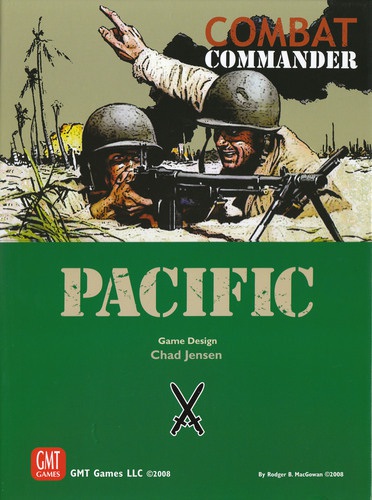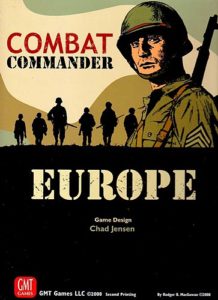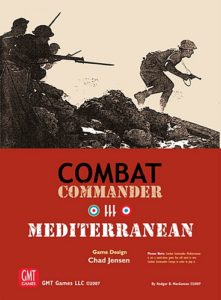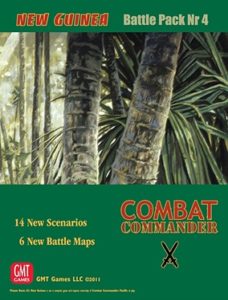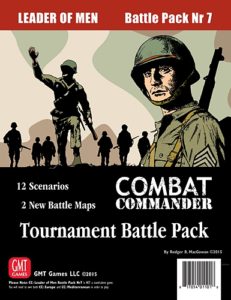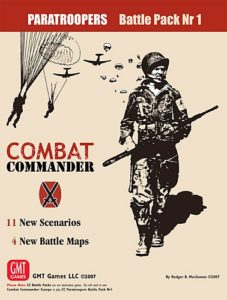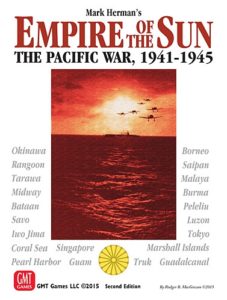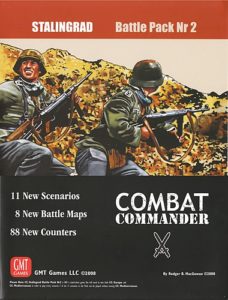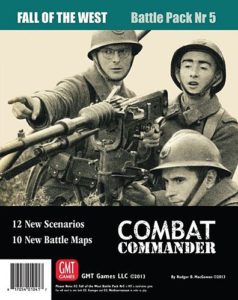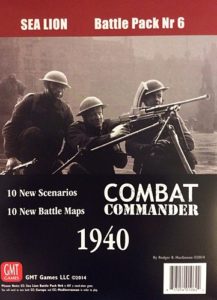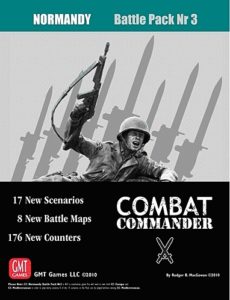Combat Commander: Pacific
CC:P is a stand alone game in the card-driven Combat Commander game series. While utilizing Combat Commander: Europe's basic rules, CC:P includes numerous rule tweaks and additions in order to more accurately portray tactical warfare as experienced by the participants in and around the Pacific and Indian Oceans.
Out of Stock
- $78.95
Combat Commander:Pacific is a card-driven board game covering tactical infantry combat in the Pacific Theater of World War II. CC:P'smain theme is the addition of three new factions to the Combat Commander family:
- Imperial Japan
- the Pacific US - with a strong emphasis on the US Marine Corps
- the Pacific Commonwealth - focusing on Indian and ANZAC forces
CC:P is a stand alone game in the card-driven Combat Commander game series. While utilizing Combat Commander: Europe's basic rules, CC:P includes numerous rule tweaks and additions in order to more accurately portray tactical warfare as experienced by the participants in and around the Pacific and Indian Oceans. This slightly ramps up the complexity of the Combat Commander series while at the same time imparting a bit more depth and realism. Just a few of the additions include:
Banzai attacks; BARs and Thompson SMGs; Beach landings & river crossings; Hidden movement; Caves; Scouts; Aircraft; Bayonets; Mortar spotting; Treetop snipers; Reconnoitering.
SCALE: Each hex of a Combat Commander map is roughly 100 feet across (about 30 meters). Each complete Player Turn abstractly represents several seconds of real time. Each complete Game Turn abstractly represents several minutes of real time.
UNITS: Due in part to the unique composition of late-war USMC squads and the imbedding of specialized weapon teams within IJA squads, the units in the game are represented by 4-6 man Teams and 8-13 man Squads. Radios — and individual weapons larger than a pistol or rifle — are represented by their own counters. Individual Aircraft are also represented with their own counters.
VICTORY: Players attempt to achieve victory by moving their combat units across the game map to attack their opponent’s combat units and occupy as many objectives as possible. The degree to which a player succeeds or fails is measured by a scenario’s specific Objective chits, the destruction of enemy units, and the exiting of friendly units off the opponent’s board edge.
GAME FLOW: A game of Combat Commander is divided into several Time segments. There is no sequence of play to follow, however: each Time segment is divided into a variable number of Player Turns, each of which may consist of one or more Fate Card "Orders" conducted by the active player. Fate Card "Actions" may generally be conducted by either player at any time. "Events" and die roll "Triggers" — both good and bad — will occur at random intervals to add a bit of chaos and uncertainty to each player’s perfect plan.
CC:P includes twelve maps featuring terrain specific to the PTO.
CC:P'splaybook includes:
- twelve scenarios.
- Pacific version of the Random Scenario Generator utilizing the new maps and nationalities. This random scenario system provides an almost unending variety of map configurations, force structures, and combat situations.
- section detailing the differences between CC:P and Combat Commander's first two volumes in order that players familiar with those earlier games can jump right into their first scenario with minimal rules reading.
- examples of play.
- Design & Development notes as well as numerous play hints.
Learn more about Combat Commander: Pacific on boardgamegeek.com
| Publisher | GMT |
|---|---|
| Year | 2020 |
| Designer | Chad Jensen |
| Language | English edition |
| Edition | Second Printing |
| Categories |
| Time | 120 - 150 mins |
|---|---|
| Minimum Age | 12 |
| # of players | 2 - 2 |
| Themes | World War II, War |
| Mechanics | event cards, Battle, card-driven battle |
